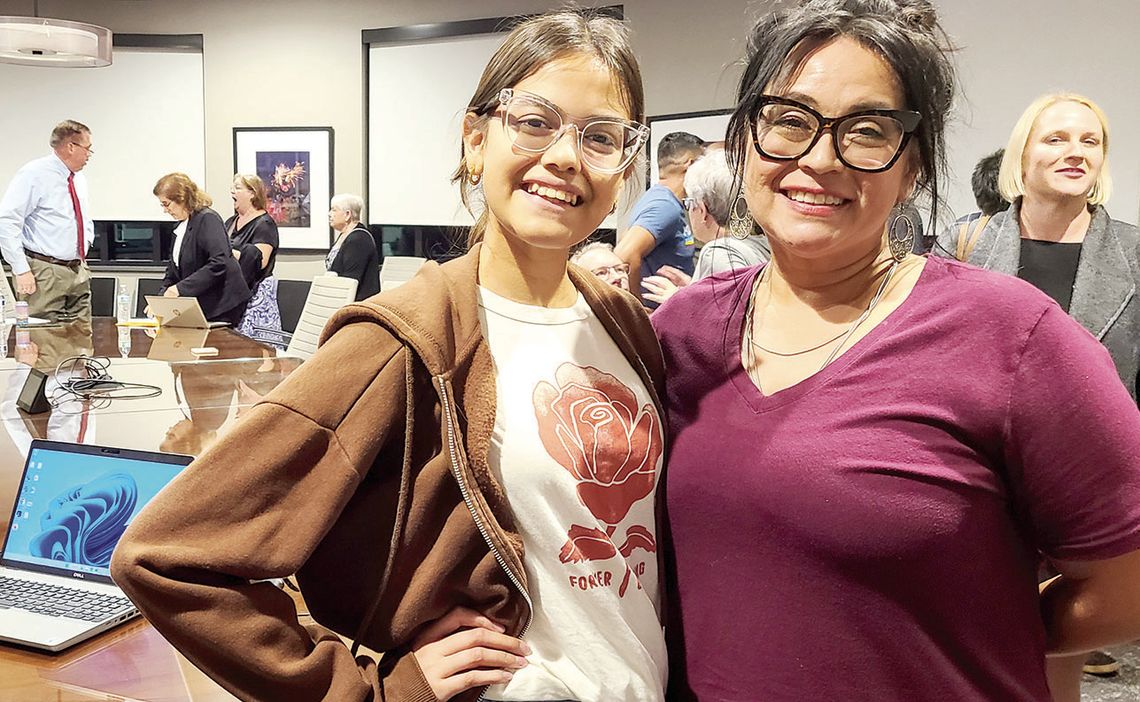HUTTO — A clash of ideologies and impassioned discussions over whether to allow non-U.S. citizens to serve on municipal boards failed to sway a slim majority of the City Council this week to change a policy barring the practice.
The Williamson County Republican Party set the stage for a spirited debate after sending an email encouraging followers to attend a council work session Thursday about amending a city rule to allow some non-citizens to serve on Hutto advisory boards and commissions.
Council members were almost equally divided over the issue
“
Why are we going to say to our neighbor, you cannot serve, we don’t want your input?”
— Trina Zepeda, Diversity, Equity, Inclusion and Belonging Commission which, if passed, would have created only three seats for non-citizens to serve in a volunteer capacity.
In the end, the council voted 4-3 to maintain the current ordinance, which says all eligible candidates for city advisory boards and commissions must be registered to vote, which means they must be U.S. citizens.
“They (non-citizen residents) are here legally and are authorized to work here by the government. Many of them own homes and pay property taxes. They pay sales taxes, use our parks and use our public library,” said Mayor Pro Tem Peter Gordon, who initiated the discussion. “They are members of the community, and some are working towards citizenship. I thought it would be great to allow them to have a greater voice in our community.”
Gordon’s proposal would have allowed legal resident noncitizens, also sometimes called “green-card holders,” to serve on three specific boards: the Diversity, Equity, Inclusion and Belonging Commission; the Parks Advisory Board; and the Library Advisory Board.
He suggested no more than one seat on each of the three boards be open to non-citizens.
City Attorney Dottie Palumbo told council there was no state prohibition against allowing legal residents to serve. She said the question the council needed to answer was whether municipal leaders wanted to allow foreign nationals on city boards, and if so, what particular boards would be appropriate.
In answer to a question from the audience, Councilwoman Amberley Kolar reported the advisory boards are currently almost at full capacity, so there is no pressing need to add members.
Many in the audience supported Gordon’s approach. Trina Zepeda, a member of the Diversity, Equity, Inclusion and Belonging Commission and the Hutto University Committee, spoke out in favor of allowing foreign nationals to participate.
“They contribute to our community in so many different ways,” Zepeda said. “They want to know how they can give. Why are we going to say that somebody who lives here, who pays taxes here, who may own a business, who may teach in our schools, who is our neighbor … why are we going to say to our neighbor, you cannot serve, we don’t want your input?”
Another audience member, who requested not to be named, said she was a naturalized U.S. citizen and listed a long history of community service in Hutto dating back to before she became an American. She noted that even without citizenship, residents from other nations have a lot to offer the city and should be allowed to participate fully.
Another audience member with an opposing viewpoint, while commending her public service, said there are many different ways for civic-minded residents to serve their community that don’t involve city boards and don’t require citizenship.
Though the boards Gordon recommended are considered non-regulatory and cannot take action without approval from the council, Mayor Mike Snyder said that does not mean they don’t have influence.
“Council has regularly said, ‘If you’re not going to take the advice of these boards, then why do we even have them here?’ As a council, we seem to always follow whatever the advisory board is asking,” Snyder said. “I think there are ways for people to be involved. I think there are ways to have their voices heard. There are certain rights and privileges that come with citizenship.”




